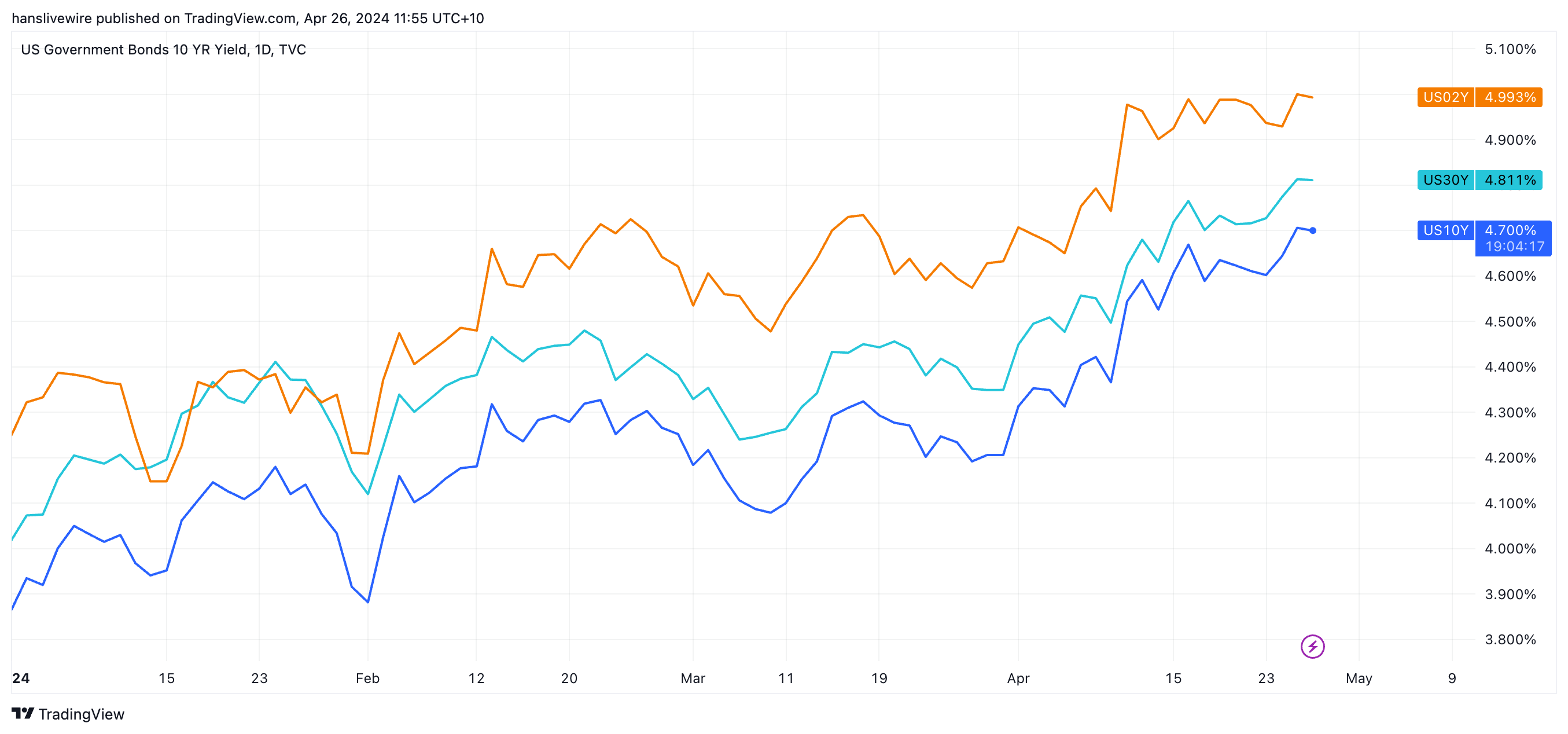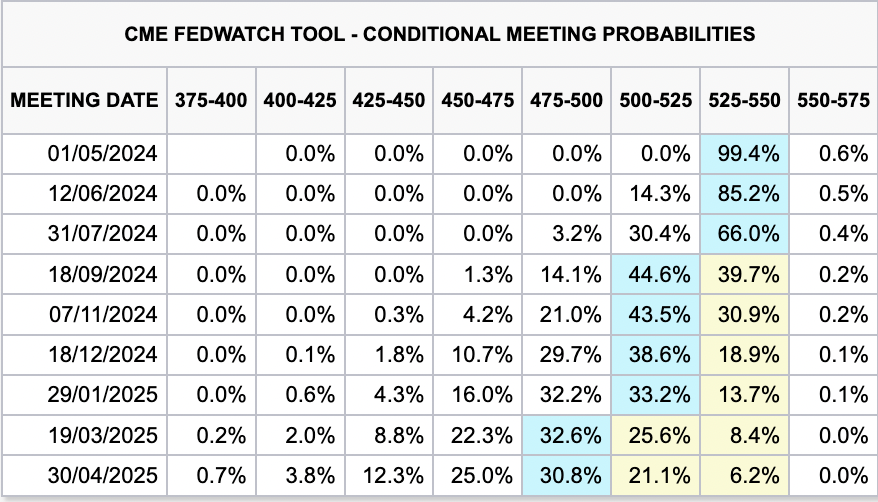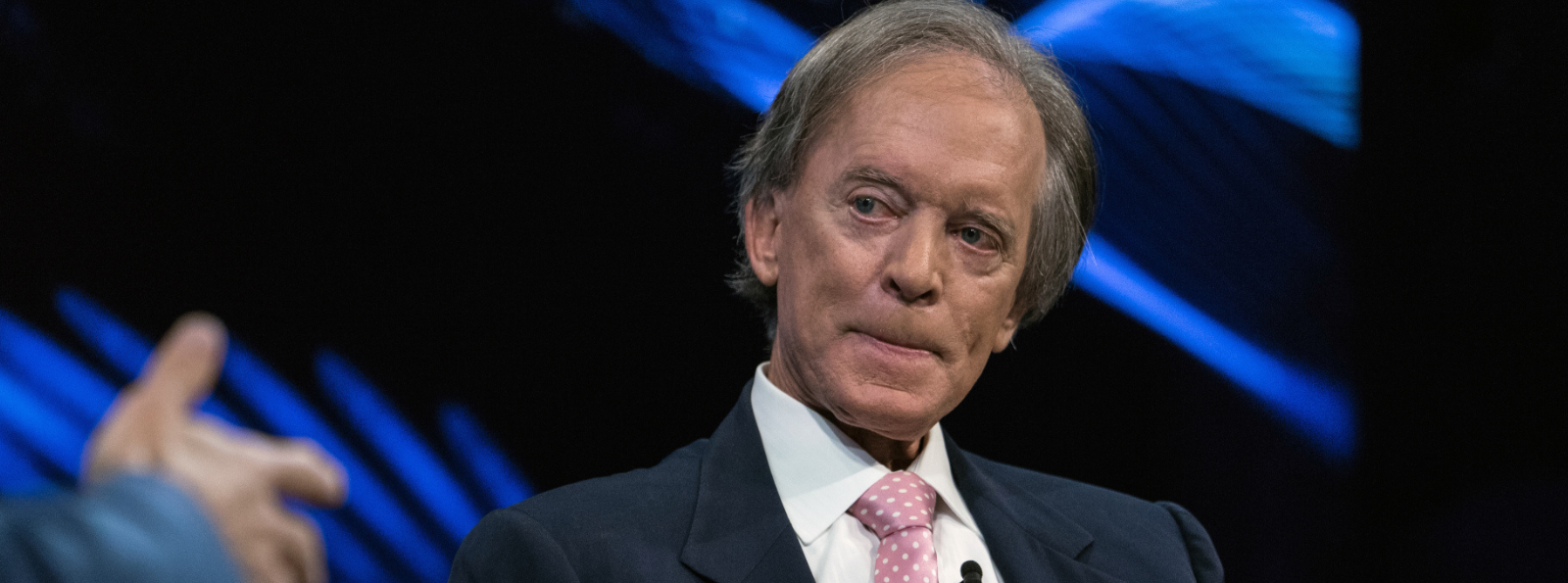Bill Gross's top 2 dividend stocks (and how bond investors should be positioned)
If you are an older reader (or just an old soul like me), chances are you are familiar with the phrase "The Day the Music Died". The immortal lyrics in Don McLean's American Pie reference the February 1959 plane crash that killed three up-and-coming stars of the rock and roll scene: The Big Bopper (J.P. Richardson), Ritchie Valens, and Buddy Holly (yes, that Buddy Holly).
Today, the reference rears its head once again - but this time, as an investing allegory rather than a musical one.
While Australians were marking ANZAC Day yesterday, markets were diving in the US following a weaker-than-expected GDP print for the first quarter of 2024. The consensus estimate of +3.1% quarter-on-quarter growth was dealt an almighty thud - the final figure was +1.6%.
Markets also reacted to core PCE inflation coming in hotter than economists expected. The core PCE print is important because it's the actual metric the Fed uses when it talks about its "2% target". Core PCE came in at +3.7%, well above the +3.4% expected in the survey.
The combination of these two data points has caused bond veteran Bill Gross to make the argument that the "pivot party" (a term coined by Emily Roland of John Hancock Investment Management) has ended.
In this wire, I'll explain why and how he's thinking about where you should be invested.
From 7 cuts to 1
Before last night's data print, equity markets were already experiencing a pullback. The S&P 500 was down nearly 4% heading into last night's data prints, while the small-cap heavy Russell 2000 has declined by more than 4% over that same period.
But last night's data, showing sluggishness in US economic growth and stubborn inflation, again brought out the worst kind of "S" word - stagflation.

Treasury yields sold off, with yields hitting fresh 2024 highs. That, in turn, was caused by swap traders who pushed back their expectations for the timing of a first rate cut pushed out even further. In addition, there is now just one rate cut priced for 2024 (a long way from the seven that was priced at the beginning of January).

Stocks also struggled, but optimists will find solace in the earnings of Microsoft (NASDAQ: MSFT) and Google (NASDAQ: GOOGL), both of which outshone analyst expectations. The latter is also paying its maiden dividend US 20 US cents a share.
Equity bulls will also argue that a hot economy has proven time and again to be a tailwind for stocks. As Bloomberg's Ed Harrison has put it, "It’s the risk of the economy rolling over that is the sell signal, not a 10-year Treasury near 4.70%."
So what does Bill Gross say you should do?

PIMCO co-founder Bill Gross knows a thing or two about markets. From 1971 until 2014, Gross managed PIMCO's total return fund - once the largest bond fund in the world - from nothing to nearly US$300 billion in assets under management.
At his peak, Gross was being dubbed "the bond king" and was advising the US government on how to navigate the Global Financial Crisis.
Although now retired, Gross still dabbles as a private investor, managing his own money as well as the money in his family's charitable foundation.
Gross also happens to be a prolific voice on X. Following last night's data, he argued that now is the time to "stick to value stocks" and "avoid tech for now". Having said this, he did call Microsoft the best in its class and the tech stock to own if you need to have exposure.
Other stocks he likes include oil and gas pipeline operators Western Midstream Partners (NYSE: WES) and MPLX (NYSE: MPLX). Both, he says, carry dividend yields of over 9% and 8% respectively. A few months ago, speaking on Bloomberg Television, Gross also said that he likes "certain [US] bank" stocks like Truist (NYSE: TFC) and KeyCorp (NYSE: KEY) given their 6%+ dividend yields. Finally, in that same interview, he also called out US telecom plays Verizon (NYSE: VZ) and AT&T (NYSE: T).
Finally, within bonds, Gross argued the US 10-year Treasury bond yield will likely move even higher to 4.75% (levels not seen since November 2023). But with short-term bonds (bills) already yielding 5.25%, he argues that short-term is better in this case than long-term.
3 topics
8 stocks mentioned

